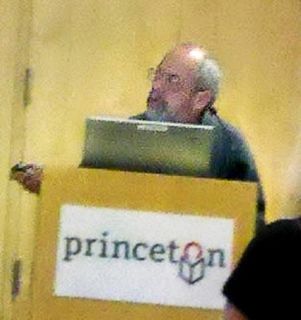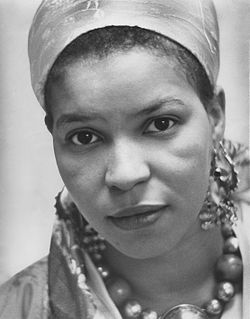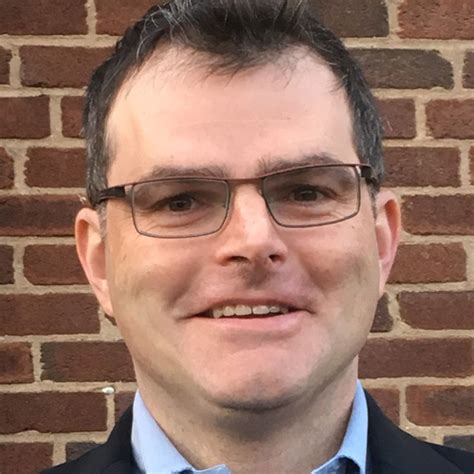A Quote by Donald Glover
The emotional aspects of a wilderness experience might be compared to a religious experience. It is particularly valuable for those people whose unconscious associations of pain and discomfort in relationships to man render a deity in human form impossible. Christianity is unacceptable to some people because of the use of the human symbol, but some who can't accept Christ can gain a tremendous sense of peace from relating to uncontaminated areas.
Quote Topics
Accept
Areas
Aspects
Associations
Because
Christ
Christianity
Compared
Deity
Discomfort
Emotional
Experience
Form
Gain
Human
Human Form
Impossible
Man
Might
Pain
Particularly
Peace
People
Relating
Relationships
Religious
Religious Experience
Render
Sense
Some
Some People
Symbol
Those
Tremendous
Unacceptable
Unconscious
Use
Valuable
Whose
Wilderness
Related Quotes
The unconscious is the only available source of religious experience. This in certainly not to say that what we call the unconscious is identical with God or is set up in his place. It is simply the medium from which religious experience seems to flow. As to what the further cause of such experience might be, the answer to this lies beyond the range of human knowledge.
Human existence is a brutal experience to me... it's a brutal, meaningless experience - an agonizing, meaningless experience with some oases, delight, some charm and peace, but these are just small oases. Overall, it is a brutal, terrible experience, and so it salvation is what can you do to alleviate the agony of the human condition, the human predicament? That is what interests me the most.
A growing body of social science research reveals that atheists, and non-religious people in general, are far from the unsavory beings many assume them to be. On basic questions of morality and human decency - issues such as governmental use of torture, the death penalty, punitive hitting of children, racism, sexism, homophobia, anti-Semitism, environmental degradation or human rights - the irreligious tend to be more ethical than their religious peers, particularly compared with those who describe themselves as very religious.
Discipleship means adherence to Christ and, because Christ is the object of that adherence, it must take the form of discipleship. An abstract theology, a doctrinal system, a general religious knowledge of the subject of grace or the forgiveness of sins, render discipleship superfluous, and in fact exclude any idea of discipleship whatsoever, and are essentially inimical to the whole conception of following Christ....Christianity without the living Christ is inevitably Christianity without discipleship, and Christianity without discipleship is always Christianity without Christ.
I say that creeds, dogmas, and theologies are inventions of the mind. It is the nature of the mind to make sense out of experience, to reduce the conglomerates of experience to units of comprehension which we call principles, or ideologies, or concepts. Religious experience is dynamic, fluid, effervescent, yeasty. But the mind can't handle these so it has to imprison religious experience in some way, get it bottled up. Then, when the experience quiets down, the mind draws a bead on it and extracts concepts, notions, dogmas, so that religious experience can make sense to the mind.
Get support and be surrounded by people who love you. Sit with the discomfort and the emotions instead of distracting yourself and numbing the pain, or it will just haunt you in another form in the future. Don't be afraid of the pain and darkness. There's information there. There's a lesson to be learned. You can use the experience as a catalyst for growth.
Math . . . music .. . starry nights . . . These are secular ways of achieving transcendence, of feeling lifted into a grand perspective. It's a sense of being awed by existence that almost obliterates the self. Religious people think of it as an essentially religious experience but it's not. It's an essentially human experience.
I do like to make people cringe. That discomfort, tension, embarrassment, pain - all of those things interest me, and not through some sort of masochistic or sadistic impulse. It illuminates what being a human being is. It taps into what it is to be human more incisively than stuff that's just very pedestrian.
I'm committed to the idea that one of the few things human beings have to offer is the richness of unconscious and conscious emotional responses to being alive. ... The kind of esteem that's given to brightness/smartness obliterates average people or slow learners from participating fully in human life, particularly technical and intellectual life. But you cannot exclude any human being from emotional participation.
There is a fundamental spiritual quality to gratitude that transcends religious traditions. Gratitude is a universal human experience that can seem to be either a random occurrence of grace or a chosen attitude to create a better experience of life; in many ways it contains elements of both. Grateful people sense that they are not separated from others or from God; this recognition of unity with all things brings a deep sense of gratefulness, whether we are religious or not.




































